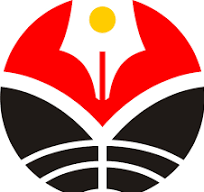Tinjauan Pustaka Sistematis: Model Kemitraan antara SMK dengan Dunia Usaha dan Dunia Industri
Abstract
Vocational education has a very important role in the national education system to create a quality national workforce. One of the programs to increase the absorption of SMK graduates in industry is the existence of a partnership program between SMKs and the Business and Industrial World (DUDI). Based on 19 articles published in 2018-2022 concerning partnerships between SMKs and DUDI, several partnership models have been established, including curriculum alignment based on industry needs, teacher and student apprenticeships, guest teachers from industry, industrial visits, teaching factory assistance, testing competency certification, employee recruitment, and infrastructure support. Some of the obstacles and challenges encountered, namely the partnership program has not been implemented optimally, the work unit is not suitable, the contents of the memorandum of understanding (MoU) have not been fully realized, the form of partnership activity is unclear, lack of concern for both SMK and DUDI in implementing the partnership program, and competition between industry causes a lack of industry trust to involve students in the production process. While the opportunities that exist include the involvement of Vocational Schools in the production process through Teaching Factory, technology updates, student competency according to industry needs and the absorption of graduates by industry is increasing.
Keywords
Full Text:
PDFReferences
Arifin, Z., Imron, A., & Wiyono, M. B. B. (2022). How Did Vocational High School in Indonesia Build Cooperation with Business and Industri During The Covid-19 Pandemic? Journal of Positive School Psychology, 4595-4608. https://www.journalppw.com/index.php/jpsp/article/view/4150
Baitullah, M. J. A., & Wagiran, W. (2019). Cooperation between vocational high schools and world of work: A case study at SMK Taman Karya Madya Tamansiswa. Jurnal Pendidikan Vokasi, 9(3), 280-293. https://doi.org/10.21831/jpv.v9i3.27719
BPS. (2022). Keadaan Ketenagakerjaan Indonesia Februari 2022. Badan Pusat Statistik. https://www.bps.go.id/pressrelease/2022/05/09/1915/februari-2022--tingkat-pengangguran-terbuka--tpt--sebesar-5-83-persen.html
Faturohman, N., & Suherman, S. (2022). The Pattern of Vocational School Partnership with Industry and the World of Work (IDUKA) In Order to Increase the Absorption Of Graduates of Setiabudhi Vocational School Rangkasbitung. Journal of Positive School Psychology, 5191–5197-5191–5197. https://journalppw.com/index.php/jpsp/article/view/7498
Handayani, S., Raharjo, T. J., & Yulianto, A. (2019). Management Strategy of SMK Negeri 3 Semarang in An Effort to Increase the Absorption Capacity of Graduates through Cooperatives in the Business and Industrial World (DU/DI). Educational Management, 8(2), 157-164. https://journal.unnes.ac.id/sju/index.php/eduman/article/view/33731
Indriaturrahmi, I., & Sudiyatno, S. (2016). Peran dunia usaha dan dunia industri dalam penyelenggaraan SMK berbasis kearifan lokal di Kota Mataram. Jurnal Pendidikan Vokasi, 6(2), 162-172. https://doi.org/10.21831/JPV.V6I2.6277
Khan, K. S., Kunz, R., Kleijnen, J., & Antes, G. (2003). Five steps to conducting a systematic review. Journal of the Royal Society of Medicine, 96(3), 118–121. https://doi.org/10.1258/jrsm.96.3.118
Kuswana, W. S. (2013). Dasar-dasar pendidikan vokasi dan kejuruan. Bandung: Alfabeta.
Rohman, M., & Sutadji, E. (2018). The concept of evaluating the implementation of Honda classes in vocational schools using the CIPP Model. Jurnal Taman Vokasi, 6(2), 142–146. https://doi.org/10.30738/jtv.v6i2.414
Muladi, W., A. P., & Moses, K. M. (2018). Study of the impact of cooperation between vocational high school and industries in Malang City. Journal of Physics: Conference Series, 1028. https://doi.org/10.1088/1742-6596/1028/1/012077
Nahriana, N., & Arfandi, A. (2020). The Cooperation of Vocational High Schools and Industries in Achieving Graduates Competence. Journal of Educational Science and Technology (EST), 6(3), 301–309. https://doi.org/10.26858/est.v1i1.15850
Noor, I., & Waluyo, H. (2019). A Relevance of The Implementation of Vocational School (VS) Towards The Needs of Industri and Workforce. International Journal of Vocational and Technical Education Research, 5(2), 1-23. https://www.eajournals.org/journals/international-journal-vocational-technical-education-research-ijvter/vol-5-issue-2-april-2019/a-relevance-of-the-implementation-of-vocational-school-vs-towards-the-needs-of-industry-and-workforce/
Purnamawati. (2018). Needs Analysis of Vocational High School Partnership Model with World Business and Industry in Makassar. Journal of Physics: Conference Series, 1028(1), 2–7. https://doi.org/10.1088/1742-6596/1028/1/012081
Purnamawati, P., & Syahrul, S. (2018). A Design of Partnership Model of Vocational High School with Business and Industrial World. 201(Aptekindo), 214–217. https://doi.org/10.2991/aptekindo-18.2018.47
Purnamawati, P., Syahrul, P., & Yahya, M. (2019). Developing a Partnership Model of Vocational High School with Business and Industrial World based Core Strategies. Icamr 2018, 227. doi:https://doi.org/10.2991/icamr-18.2019.65
Purnamawati, Yahya, M., & Syahrul. (2019). A Feasibility Study on a Partnership Model between Vocational High Schools, Industry and Workplace Based Core Strategies. Journal of Physics: Conference Series, 1387(1). https://doi.org/10.1088/1742-6596/1387/1/012046
Widodo, Ratmawati, D., Ismara, K. I, & Wagiran. (2020). Partnership Model as Empowerment Between Vocational Schools and Business World/Industrial World. Journal of Mechanical Engineering Education, 4(11-18). http://dx.doi.org/10.30870/vanos.v5i1.8212
Rojaki, M., Fitria, H., & Martha, A. (2021). Manajemen kerja sama sekolah menengah kejuruan dengan dunia usaha dan dunia industri. Jurnal Pendidikan Tambusai, 5(3), 6337-6349. https://jptam.org/index.php/jptam/article/view/1949
Sari, S. N., & Haryanto. (2020). The Implementation of Industrial Internship of 4-Years-Competence Skills in Vocational High Schools. 511(Yicemap 2019), 199–202. https://doi.org/10.2991/assehr.k.201221.042
Slamet, P. (2016). Konstribusi Kebijakan Peningkatan Jumlah Siswa SMK Terhadap Pembangunan Ekonomi Indonesia. Jurnal Cakrawala Pendidikan, 35(3). https://doi.org/10.21831/cp.v35i3.11443
Sumantri, D., Subijanto, S., Siswantari, S., & Sudiyono, S. (2019). Pengembangan Sekolah Menengah Kejuruan Empat Tahun Bidang Keahlian Prioritas Program Nawacita. Jurnal pendidikan dan kebudayaan, 4(2), 152-168. https://doi.org/10.24832/jpnk.v4i2.1356
Sumbodo, W., Pardjono, Samsudi, & Rahadjo, W. D. (2018). Implementation of partnership management model of SMK (Vocational High School) with existing industries in mechanical engineering expertise in Central Java. AIP Conference Proceedings, 1941. https://doi.org/10.1063/1.5028096
Ubaidah, S., Trisnamansyah, S., Insan, H. S., & Harahap, N. (2021). Partnership Management Between Vocational Schools with the World of Business and Industry to Improve the Quality of Graduates Who Are Ready to Work. International Journal of Nusantara Islam, 9(1), 58–69. https://doi.org/10.15575/ijni.v9i1.11818
Wahjusaputri, S., & Bunyamin, B. (2022). Development of Teaching Factory Competency-Based for Vocational Secondary Education in Central Java, Indonesia. International Journal of Evaluation and Research in Education, 11(1), 353-360. https://doi.org/10.11591/ijere.v11i1.21709
Yohana, C. (2020). Factors influencing the development of entrepreneurship competency in vocational high school students: A case study. International Journal of Education and Practice, 8(4), 804–819. https://doi.org/10.18488/journal.61.2020.84.804.819
Zakaria, M. I., Maat, S. M., & Khalid, F. (2019). A Systematic Review of Problem Based Learning in Education*. Creative Education, 10(12), 2671–2688. https://doi.org/10.4236/ce.2019.1012194
Zuhairoh, N., & Pattinasarany, I. R. I. (2021). Kemitraan Sekolah Menengah Kejuruan (SMK) Dengan Dunia Usaha/Dunia Industri (DU/DI) Sebagai Implementasi Revitalisasi SMK (Studi Tata Kelola Kemitraan Pada SMK Swasta “DP” Di Jakarta Timur). JISIP (Jurnal Ilmu Sosial Dan Pendidikan), 5(3), 2598–9944. https://doi.org/10.36312/jisip.v5i3.2391
Refbacks
- There are currently no refbacks.








